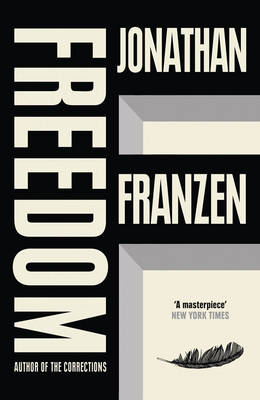
gmcgregor
Written on Apr 3, 2018
We then go back and time and get Patty's life story, in which she always feels like an outsider in her ambitious upstate New York family, culminating in her parents' refusal to do anything when she's raped by the son of a powerful neighbor. She flees on an athletic scholarship to Minnesota, where she develops a friendship with a disturbed classmate, through whom she meets musician Richard Katz and his roommate, Walter Berglund. Richard and Patty are initially interested in each other, but Walter is also interested in Patty, and though he "gets" the girl, the attraction between his wife and his best friend lingers. We also move forward to Richard, Walter, and Joey's perspectives after their move out of Minnesota, and how each struggles with freedom as opposed to stability, and the consequences of exercising the choices that become available.
Jonathan Franzen as a human being is not my favorite. But as a writer, he is undeniably talented. Freedom wrestles with some weighty stuff: 9/11, environmentalism, corporate philanthropy, temptation, infidelity, the way family patterns repeat over generations, sexual assault, selling out, forgiveness. That's a lot for one book, even a long-ish one, to tackle. But for the most part, he pulls it off. Though I didn't necessarily always like the characters he created, I almost always found them compelling and interesting. Though some of the plot schemes he tangles them up veer towards the ridiculous, he mines them for emotional truth well enough that they stay on the good side of the line of believability.
There are some missteps, though. I found some of his decisions regarding Patty's trajectory baffling. Her rape doesn't seem like a character-informing experience for her, serving rather as an explanation to write her parents out of the book until there can be a rapprochement at the end to bring things full circle. And her college friend Eliza's obsession with her also seemed underbaked...it never really went anywhere besides serving as her introduction to Richard. The balance of Patty's story rounded her out, but the way he wrote Connie (Joey's childhood sweetheart) never made sense to me. She's not a person, she's a symbol, as was Lalitha, a young colleague of Walter's who becomes besotted with him. Maybe our cultural moment just has me primed to see underlying misogyny better than I used to, but I can't deny that it's here and it was part of what kept me from being fully absorbed in the novel. It's good, very good even, and I would recommend it with the caveat that if you're looking for strong female characters, you won't find them here.


